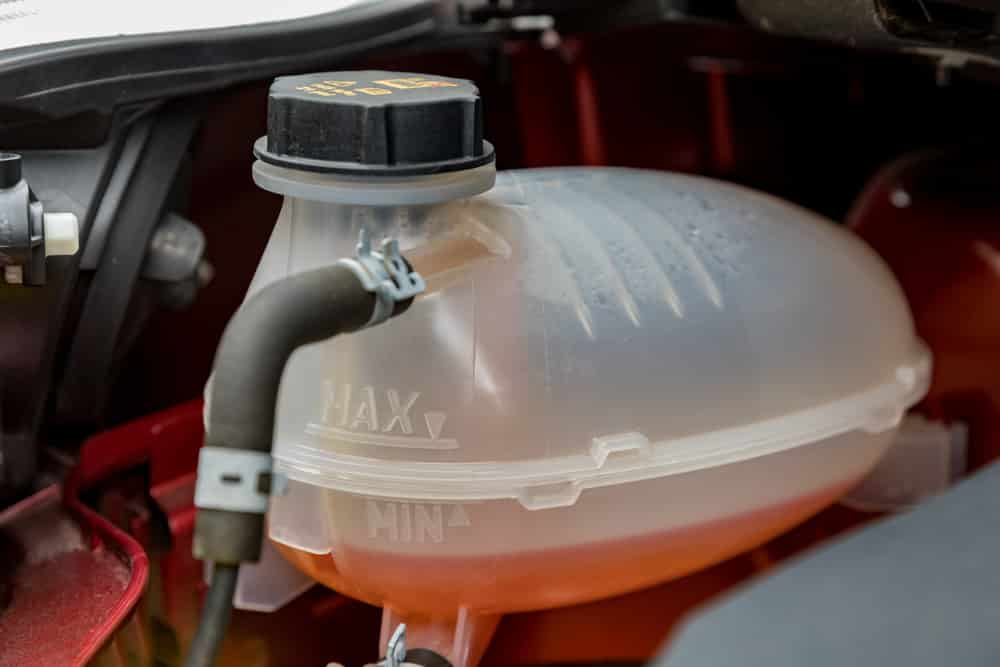Without coolant you ll have some trouble with this radiator

Without Coolant, You’ll Have Some Trouble with this Radiator

A vehicle’s cooling system plays a vital role in maintaining its engine temperature and preventing overheating. At the heart of this system lies the radiator - a key component responsible for dissipating heat and regulating the engine’s temperature. However, without proper coolant, this crucial part can spell trouble for your vehicle’s performance and longevity.
Understanding the Importance of Coolant
Coolant, also known as antifreeze, is a specially formulated liquid that helps regulate the engine’s temperature. It is typically a mixture of water and ethylene glycol or propylene glycol, which effectively absorbs and dissipates heat generated by the engine.
The primary function of coolant is to prevent the engine from freezing in cold temperatures and overheating in hot conditions. It transfers excess heat away from the engine to maintain an optimal operating temperature range, allowing the vehicle to function efficiently.
How Coolant Works with the Radiator
The radiator is an integral part of the cooling system, designed to transfer heat from the coolant to the air. It consists of a series of tubes and fins that facilitate heat dissipation, and the coolant passes through these tubes as it circulates through the system.
While circulating through the engine, the coolant absorbs the excess heat generated by the combustion process. It then flows into the radiator where it exchanges heat with the surrounding air. The fins on the radiator increase the surface area available for heat transfer, ensuring efficient cooling.
The Dangers of Low Coolant Level

Now, let’s explore the consequences of running your vehicle with a low coolant level. Firstly, insufficient coolant can lead to increased engine temperature, as there won’t be enough liquid to absorb and dissipate the excess heat effectively. Without proper cooling, the engine can quickly overheat, causing potential damage to various components.
Secondly, low coolant levels can result in poor heat transfer within the radiator. Insufficient coolant means reduced contact between the hot coolant and the radiator’s tubes and fins, hindering the dissipation of heat. This can lead to an overheated radiator and compromised cooling system efficiency.
Furthermore, low coolant levels may cause corrosion and the formation of air pockets within the cooling system. The lack of coolant circulation can result in localized hot spots and potential engine damage. Corrosion can also lead to the development of leaks, further exacerbating the cooling system’s problems.
Maintaining Optimal Coolant Levels
To prevent the troubles associated with low coolant levels, regular maintenance is crucial. Here are a few steps you can take to ensure your vehicle’s cooling system stays in top shape:
Check Coolant Level: Regularly inspect the coolant level in the coolant reservoir. Ensure it is at or slightly above the minimum level marked on the reservoir.
Monitor Coolant Quality: Over time, coolant can break down and lose its effectiveness. It is important to check for any signs of contamination, such as rust or discoloration. If necessary, consider flushing the system and replenishing it with new coolant.
Fix Leaks: Keep an eye out for coolant leaks, both in the engine compartment and underneath the vehicle. If you observe any leaks, have them repaired promptly to maintain optimal coolant levels.
Scheduled Maintenance: Follow the manufacturer’s guidelines for regular maintenance, including coolant flushes and replacement. This ensures the cooling system remains in optimal condition and helps prevent any potential issues.
In conclusion, understanding the crucial role of coolant in maintaining the engine temperature and preserving the well-being of your vehicle is paramount. Ensure you keep a close eye on the coolant levels, monitor for leaks, and adhere to regular maintenance schedules. By doing so, you can avoid the troubles that arise from a depleted coolant supply and ensure your radiator keeps your engine cool and running smoothly for years to come.
Tags
Share
Related Posts
Quick Links
Legal Stuff

